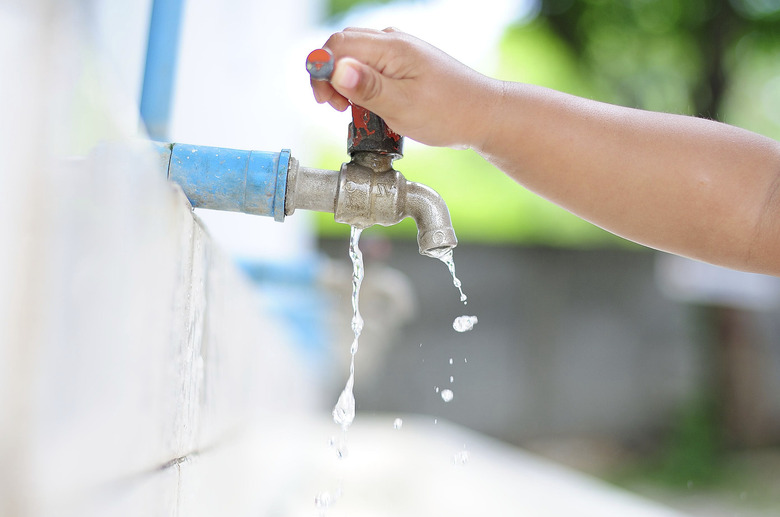The Importance Of Saving Water
Water is necessary for the sustenance of human life. While the supply seems abundant, water is not a limitless resource, particularly the fresh potable water most necessary to human survival. Without conservation efforts, this vital supply of water may be exhausted. Conservation carries economic benefits as well, as energy and equipment are also conserved as a direct result of water preservation efforts.
Preservation of Farming
Preservation of Farming
Particularly in California's Central Valley, increased urbanization has resulted in the draining of precious aquifers and surface water supplies from rural farmland. As in other areas of the country, the Central Valley is an important provider of food crops for the state and the nation, and increased water demand in cities has reduced the supply for the very food needed to sustain these cities. The United States Geological Survey reports that the Tulare Valley, the hottest and driest part of California's Central Valley, continues to show declines in groundwater levels and the related groundwater storage.
Environmental Factors
Environmental Factors
The vast majority of life on Earth is at least indirectly tied to the supply of water. Conservation protects the balance of life on Earth, which would be upset by a reduction in the water supply. Overuse of water threatens other life forms which help sustain us. For example, the United States Bureau of Reclamation reports that, during the past 100 years, some 21 species of fish have become extinct in the 17 Western states in part due to the alteration of habitat. Some of this habitat change is due to the expansion of human populations, and the same population increase has also increased the demand for water from these areas.
Personal Cost
Personal Cost
Water is not processed and delivered to your doorstep for free. Every time you use water, your local utility charges you a fee. The greater the demand for water, the greater the price you will be charged. By conserving water, you will save money both in terms of the quantity used and the price per unit.
Energy Consumption
Energy Consumption
Over-consumption of water leads to the over-consumption of another non-renewable resource, energy. Water in your home must be heated for a number of uses, such as cleaning and bathing, and this takes energy. Additionally, your local water utility must use energy to process and deliver water to your home, so the over-consumption of water requires more energy out of the utility company as well.
Infrastructure and Technology Development
Infrastructure and Technology Development
Conserving water reduces the demands to create and maintain water treatment and delivery systems, such as sewage plants and individual septic systems. The more water that is consumed, the more this equipment wears down and needs replacement. Additionally, over-consumption of water can overwhelm local treatment plants, resulting in some water being forced through before being fully treated, possibly creating health hazards. Similarly, an overburdened septic system can result in untreated water leaking into the surrounding soil.
Cite This Article
MLA
Csiszar, John. "The Importance Of Saving Water" sciencing.com, https://www.sciencing.com/the-importance-of-saving-water-4965301/. 5 December 2018.
APA
Csiszar, John. (2018, December 5). The Importance Of Saving Water. sciencing.com. Retrieved from https://www.sciencing.com/the-importance-of-saving-water-4965301/
Chicago
Csiszar, John. The Importance Of Saving Water last modified March 24, 2022. https://www.sciencing.com/the-importance-of-saving-water-4965301/
